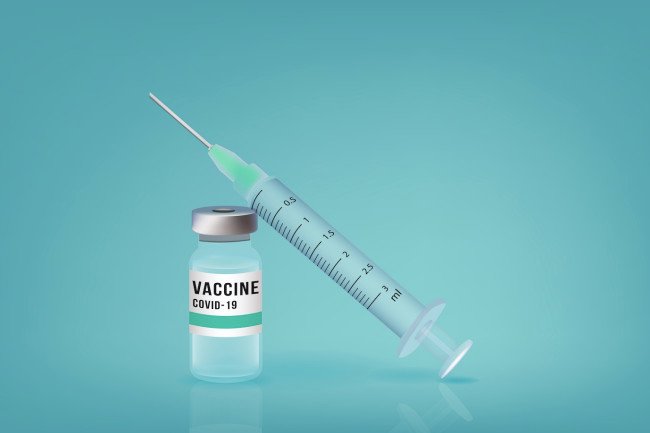Recommending COVID-19 vaccination for cancer patients
February 26, 2021 | Friday | Views
We recommend that all cancer patients get vaccinated against COVID-19
Source credit: Shutterstock
A vaccine is a priority
Currently, the only plausible option to overcome the COVID-19 pandemic is vaccination. In the first phase, the drive is prioritised for individuals with increased risk - frontline healthcare workers, people over the age of 65, and individuals with pre-existing health conditions (people with cancer, obesity heart disease, or lung diseases). Social media is full of communication amongst lay persons that speculate about COVID-19 vaccination for cancer patients. When should cancer patients on active treatment be vaccinated? What if they are on immunotherapy? What if they have already suffered from COVID-19 in the past? What if they have protective antibodies against COVID-19? Do they have to take additional precautions during or after vaccination? Should they be worried because long term results are not available? How long will the vaccine immunity last? The bottom line is that the benefits of the vaccine far outweigh any known risks.
Nature of cancer treatment and COVID-19
Cancer patients are vulnerable to COVID-19, perhaps more than the general population. Also, if they do get COVID-19 infection, its severity is likely to be higher. This could be because cancer patients are immunocompromised – partly due to the underlying disease itself and partly due to their anti-cancer treatments. International oncology bodies encourage all cancer patients to take the COVID-19 vaccine at the earliest opportunity. Any vaccine that is not live is safe for them. In case they are currently suffering from or have recently recovered from a COVID-19 infection, the vaccination can be postponed for a few weeks. If the cancer patient is on immunotherapy, has significant infection or is neutropenic, the vaccine should be delayed till recovery. Cancer patients have not been found to have a higher incidence of side effects from the COVID-19 vaccine.
mRNA – An important component of some licensed vaccines
Currently there are several vaccines that have received emergency authorisation. This includes those manufactured using the mRNA technique, those prepared against the S (spike protein) and those developed against the dead virus. Of these the mRNA technique is the most recent and hence hotly debated. This technique makes the vaccine fragile and hence requires special handling – especially at very low temperatures. For instance, the Pfizer vaccine needs to be stored at minus 70 degree Centigrade. Fortunately, all vaccines have similar efficacy (about 90 per cent protective effect). In most countries, patients do not have an option to choose between available vaccines. It is recommended that people take whatever vaccine is available – making sure that the subsequent vaccine is also the same type (most vaccines require two doses at interval of 15 to 28 days).
The right time for a vaccine
Patients with cancer have an increased risk of severe COVID-19 and thus should be vaccinated at the earliest opportunity regardless of age or other factors. While on active anti-cancer therapy, the strategy should be to vaccinate in between the cycles of therapy. In special circumstances, the treating oncologist will have to decide the right time for a cancer patient to be vaccinated.
Care and precautions
It is important to share history of pre-existing illnesses, past allergies, and ongoing medication with the doctor before taking the COVID-19 vaccine. In case of doubt, help of the vaccine helpline should be taken. It is a good idea to take one tablet of paracetamol just before the COVID-19 vaccination, 12 hours later and twice a day for the next day. This is not necessary but will help reduce or prevent common side effects like fever, body ache and pain. Taking the vaccine does not magically protect the recipient from COVID-19 immediately. Hence it is necessary to continue strictly following the recommended precautions of using face masks, frequent hand-washing and maintaining physical distancing till 30 days after the final dose of the vaccine.
Subgroups of cancer patients & COVID-19 vaccination
It is good to remember that cancer patients were excluded from COVID-19 vaccine trials. This is not unusual. In almost all clinical trials studying new medications, patients with significant illnesses are excluded. This also applies to pregnant women and children below the age of 15 years. Patients above the age of 55/65 years were also mostly excluded. This does not mean that COVID-19 vaccine should not be given to the elderly. Currently COVID-19 vaccine should not be given to those with allergies to any component of the vaccine, those with prior history of anaphylaxis and ladies who are pregnant.
Open - ended research
While more than one lakh people have been vaccinated and studied in various clinical trials, we are still learning a lot about both COVID-19 and the vaccines currently available. For instance, which vaccine will give longest immunity? Which vaccine is better against more virulent strains of COVID-19, like the UK and South African strain? As we get longer follow up and more information, such doubts will become clearer. The important point is that technological advances has made it possible to manufacture, test and make available COVID-19 vaccines in a matter of months – a truly modern marvel in this fight against the pandemic.
Conclusion
We recommend that all cancer patients get vaccinated against COVID-19. This is also in line with recommendations by important international oncology societies. Vaccination should be taken even by those patients who have been previously exposures to the virus or have protective antibody titres. Timing of the vaccination can be variable and needs to be decided on case to case basis for cancer patients on active chemotherapy, those with compromised performances status or those having uncontrolled comorbidity. Currently we recommend COVID-19 vaccine should not be given to pregnant or lactating mothers.
Dr Purvish M Parikh, Medical Oncologist, Clinical Advisor – Esperer Onco Nutrition (EON), Mumbai









